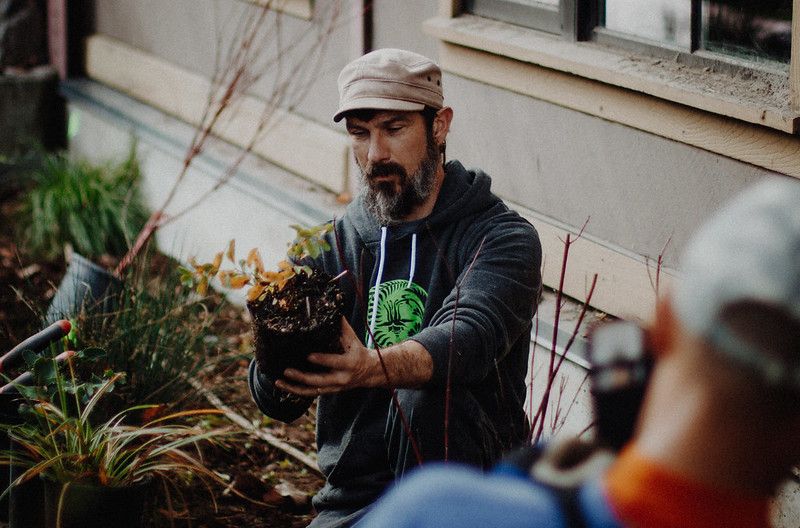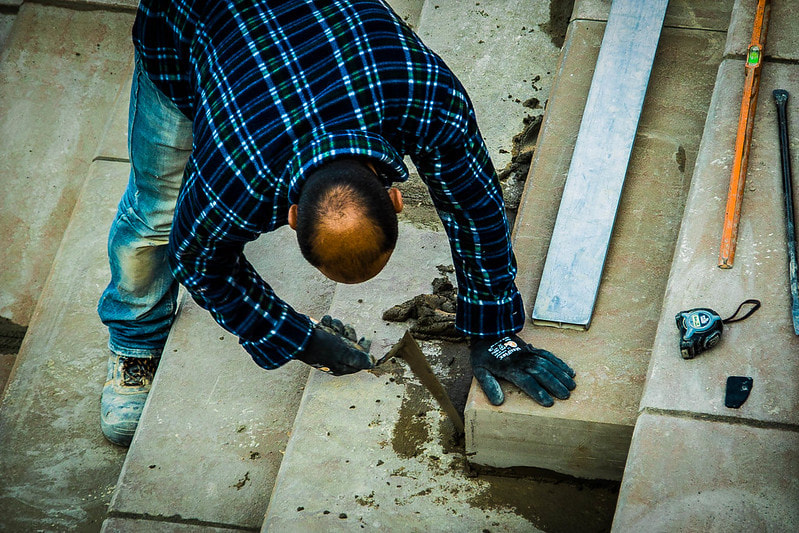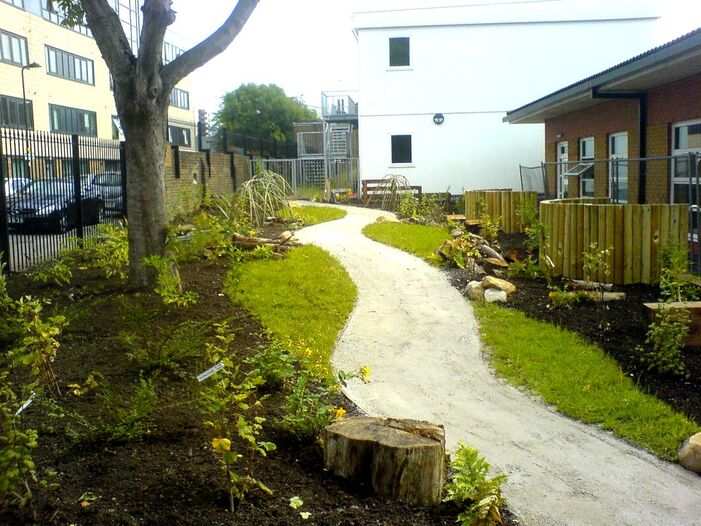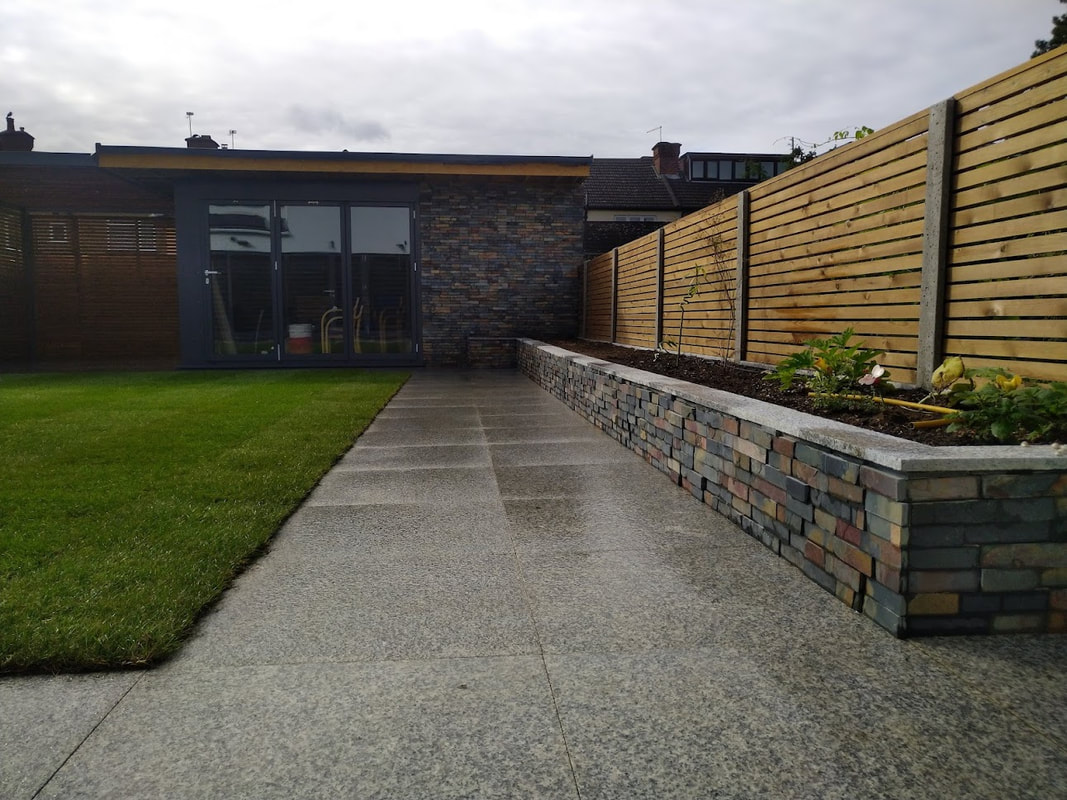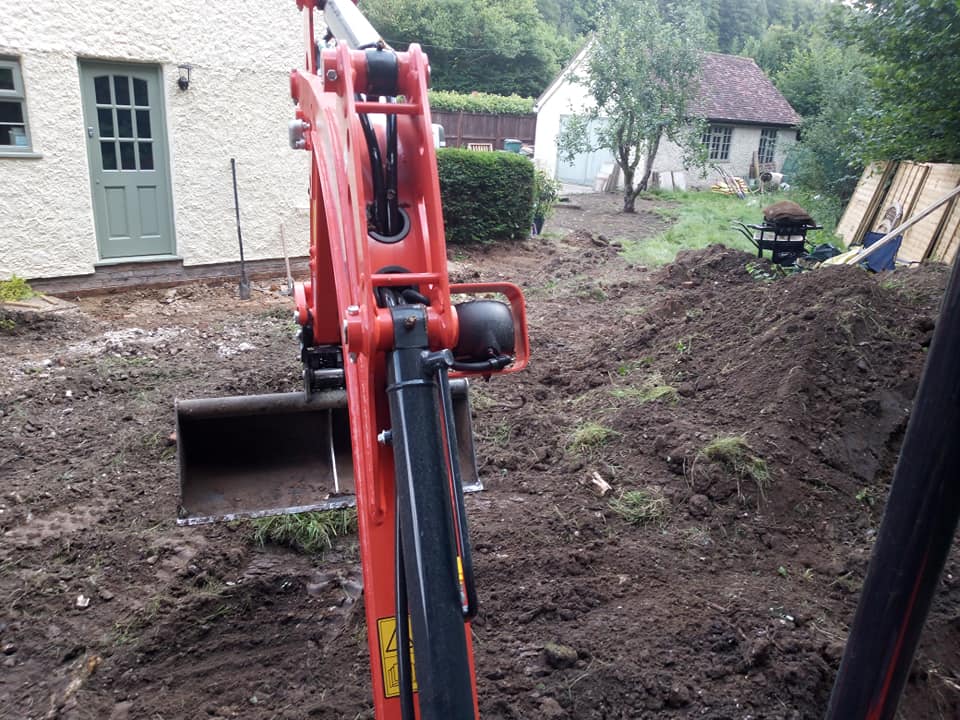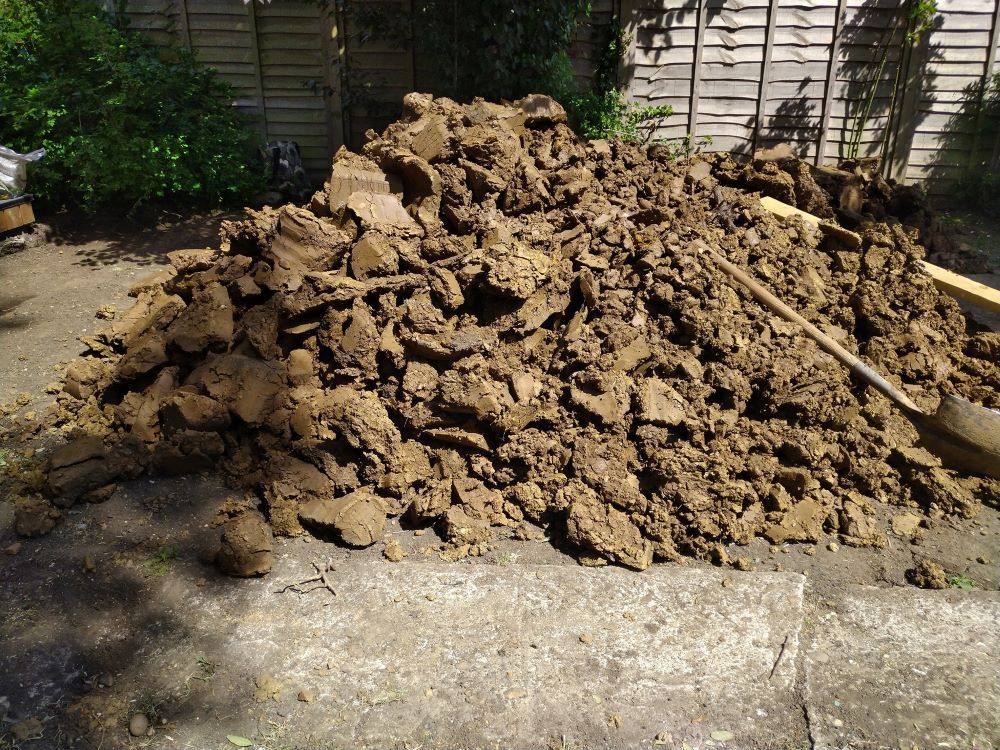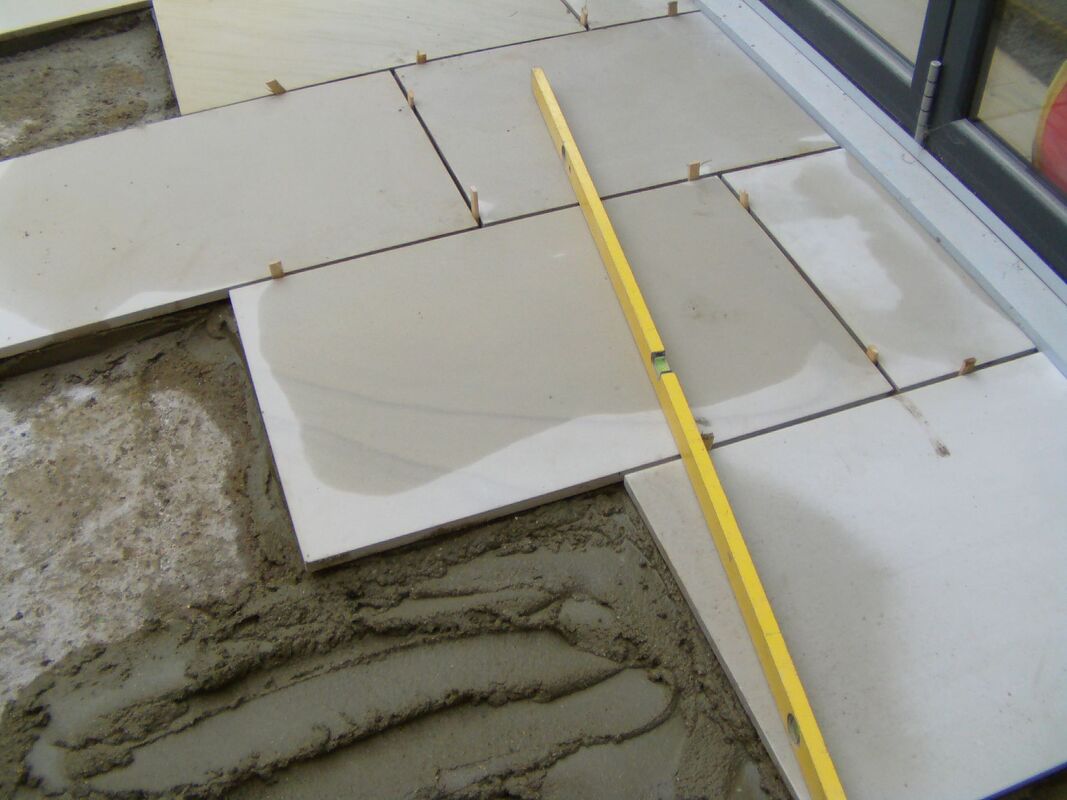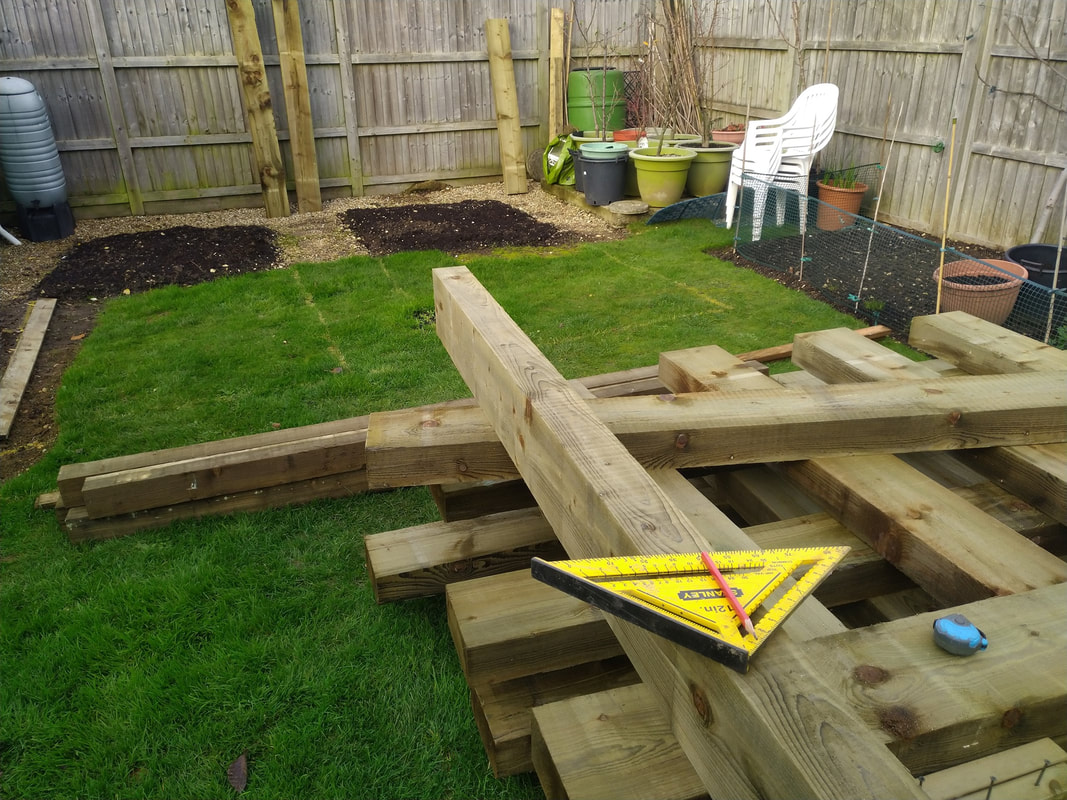|
This article contains affiliate links
Landscaping is a trade involved in the modification of outdoor landscapes, parks and gardens. In a recent extensive, survey of all industries landscaping topped the list for healthiest and happiest profession.
It was theorised that a combination physical activity and exposure to green spaces were major factors. A career in landscaping is a sure way to leading a much more active and healthier lifestyle. Some typical examples of daily projects include; planting, laying new lawns, building patios, decks, raised beds and pathways to name a few. The average duration for a landscaping project is five weeks meaning you are never in one location for an extended period of time. This makes landscaping an extremely varied and exciting trade perfect for outdoor lovers. The two most typical types of landscaping are hard landscaping and soft landscaping. Soft landscapingSoft landscapers are more focused on working with plants including landscape maintenance and ground preparation. It is typical for soft landscapers to have an in-depth interest and knowledge of gardening. Some traditional projects for soft landscapers include; land clearances, excavator works, planting schemes and laying new lawns. There are multiple job opportunities for soft landscapers in both the private and public sector. Soft landscapers can benefit directly from consistent maintenance contracts and singular projects. Entry level jobs for soft landscaping are traditionally frequent as skills are learnt on site. There are many horticultural courses which soft landscapers can take to forward their career. Hard landscapers
Hard landscaper’s day to day duties are focused around the physical construction of landscapes. Hard landscaping is especially highly skilled including most of the major trades. Some of these include carpentry, masonry, brickwork, electrical, paving, rendering, external tiling, cladding, and Machine operating. In the private sector hard landscaping projects include whole garden builds, including garden design installation. These can be very exciting projects to be involved in actually building a physical product. Hard landscaping vacancies are extremely varied and span both the public and private sector. From playground installation to decking and patios hard landscaping is extremely diverse. The wide range of trade skills required makes hard landscapers very sought after tradesmen. How to become a landscaper?
The first step in becoming a hard or soft landscaper with no experience is enthusiasm and knowledge. Landscaping companies are much more likely to hire if they see you have foundation knowledge of the industry. If you have an active interest in gardening and building things you are a perfect candidate. Carry out as many projects you can and take pictures of your best work. If you do not have a garden, offer your services to local community projects. Offer free services on social media locally for small projects you know you can undertake well. Below I have described how to become both a soft and hard landscaper further. Soft landscaper
Entry level jobs for soft landscaping are traditionally frequent as many skills can be learnt on site. There are many courses which have a focus around soft landscaping including estate management, horticulture and green keeping. One of the most common entry points to soft landscaping is maintenance operative. Such a role can provide you a good all round knowledge of the trade. Like all entries to any endeavour, passion and enthusiasm are very important. The most successful soft landscapers continue to research horticulture and gardening throughout their career. A great book to get you started is the 'Principles of Horticulture' by Charles Adams' An existing knowledge of gardening and good plant identification will make you a contender for any role. Normally a keen interest and a genuine intention to work hard and learn will secure entry level employment. Hard landscaper
Entry level jobs as hard landscapers do exist but typically as landscaping labourers first. To guarantee a fast progression to a skilled landscaper an apprenticeship opening is optimum. However another route would be to learn a dominant hard landscaping skill such as brickwork. Being competent in laying bricks and paving is an almost guaranteed way to enter the profession. There are courses in hard landscape construction which offer a good introduction to the trade. If you are serious about becoming a hard landscaper a good book on the subject is a great start, I recommend 'Landscape Construction' by David Sauter. However most hard landscapers will tell you they learnt by physically doing the job. The best way to build confidence is buy in some materials and practice. Buy in some bricks and paving and practice laying them with a mixture of sand and clay. Today there are plenty of videos and resources online to teach you the basics. Why not start building your own garden or offer to help build a community project in your spare time? How much do landscapers earn?
The average salary of landscapers in the UK is £22,500 However this regional, average figure is not in the slightest way representational to what landscapers can earn. If you are a self employed landscaper with your own business you could be earning £100,000 a year. In general soft landscapers working for a company will earn a salary of around £22.500. Younger trainees without a driving license will earn between £15,500 and 18,000 a year. Hard landscapers generally earn more than soft landscapers. The average hard landscaper salary in the UK is £30,000 a year, however the salary of a hard landscaper can vary hugely. For example landscapers in London will earn more than other regions. Hard landscapers who run whole projects can earn between £32,000 and 38,000 a year. This is also the case for multiple trade landscapers working in high specification garden design installation companies. However a self employed landscaper with their own business employing staff can earn much more. Such landscaping business owners can earn between £35,000 and £75,000 a year for one full time team. Skilled landscapers who are dedicated to perfect service and start a business can end up in the top 20% of earners. 10 Benefits of a landscaping career
|
The Author
|
Landscaping services across Buckinghamshire, Amersham, Aylesbury & High Wycombe
Hyde Heath, Amersham, Buckinghamshire |
|

